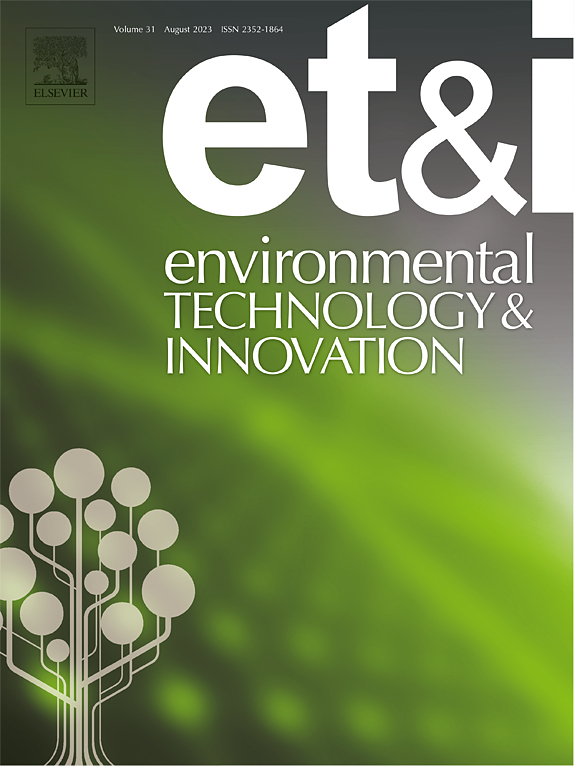通过微生物驱动的固态发酵强化咖啡因提取茶废物的可持续增值
IF 7.1
2区 环境科学与生态学
Q1 BIOTECHNOLOGY & APPLIED MICROBIOLOGY
引用次数: 0
摘要
研究了绿茶渣(GTW)和红茶渣(BTW)固态发酵(SSF)对可提取咖啡因含量的微生物影响。咖啡因含量显著增加,在45°C和55 %含水量下发酵6天的GTW产生了更高的咖啡因含量(通过高温提取的干质量为~ 13.7134 mg/g,在第0天比对照未发酵的GTW高~ 5.098 mg/g)。SSF还在室温下用最少的溶剂提高了咖啡因的提取,提供了节能的优势。通过质子转移反应时间飞行质谱(PTR-ToF-MS)分析挥发性有机化合物(VOCs)和DNA测序分析微生物谱,揭示了与微生物活性相关的关键VOCs (m/z 59, m/z 61, m/z 89)。发酵GTW中的优势菌(芽孢杆菌、拟芽孢杆菌)和真菌(曲霉)可能有助于提高咖啡因的提取率。这些发现强调了茶渣中微生物转化的SSF及其作为增值产品可持续提取咖啡因的潜力。本文章由计算机程序翻译,如有差异,请以英文原文为准。
Sustainable valorization of tea waste by enhanced caffeine extraction via microbial-driven solid-state fermentation
Solid-state fermentation (SSF) of green tea waste (GTW) and black tea waste (BTW) was evaluated to assess microbial effects on extractable caffeine content. A significant caffeine increase was observed, with GTW fermented at 45°C and 55 % water content for 6 days yielding the higher caffeine content (∼13.7134 mg/g dry mass via high-temperature extraction, ∼5.098 mg/g dry mass higher than control, unfermented GTW on day 0). SSF also enhanced caffeine extraction at room temperature with minimal solvent, offering an energy-efficient advantage. Volatile organic compounds (VOCs) analysis by the proton transfer reaction-time of a flight-mass spectrometer (PTR-ToF-MS) and microbial profiling by DNA sequencing analysis revealed key VOCs (m/z 59, m/z 61, m/z 89) linked to microbial activity. Dominant bacteria (Bacillus, Paenibacillus) and fungi (Aspergillus) in fermented GTW likely contributed to improved caffeine extractability. These findings highlight microbial transformations in tea waste SSF and its potential for sustainable caffeine extraction as a value-added product.
求助全文
通过发布文献求助,成功后即可免费获取论文全文。
去求助
来源期刊

Environmental Technology & Innovation
Environmental Science-General Environmental Science
CiteScore
14.00
自引率
4.20%
发文量
435
审稿时长
74 days
期刊介绍:
Environmental Technology & Innovation adopts a challenge-oriented approach to solutions by integrating natural sciences to promote a sustainable future. The journal aims to foster the creation and development of innovative products, technologies, and ideas that enhance the environment, with impacts across soil, air, water, and food in rural and urban areas.
As a platform for disseminating scientific evidence for environmental protection and sustainable development, the journal emphasizes fundamental science, methodologies, tools, techniques, and policy considerations. It emphasizes the importance of science and technology in environmental benefits, including smarter, cleaner technologies for environmental protection, more efficient resource processing methods, and the evidence supporting their effectiveness.
 求助内容:
求助内容: 应助结果提醒方式:
应助结果提醒方式:


